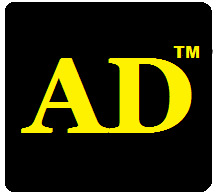![]()
![]()
![]()
![]()
![]()
BURKINA FASO
Independence 5 August 1960
Motto: “Homeland or Death, we will overcome”
Ouagadougou is the Capital City of Burkina Faso
Burkina Faso is a member of United Nations, La Francophonie, Organization of Islamic Cooperation, The Confederation of Alliance of Sahel States along with Mali which was formed on 6 July 2024.
Ouagadougou or Wagadugu (/ˌwɑːɡəˈduːɡu) is the capital city of Burkina Faso, and the administrative, communications, cultural and economic center of the nation. It is also the country’s largest city, with a population of 2,415,266 in 2019.
Burkina Faso who gained Independence 5 August 1960, is a landlocked country in West Africa, bordered by Mali to the northwest, Niger to the northeast, Benin to the southeast, Togo and Ghana to the south, and Ivory Coast to the southwest. It covers an area of 274,223 km2 (105,878 sq mi). In 2024, the country had an estimated population of approximately 23,286,000.
Ibrahim Traoré (born 14 March 1988) is a Burkinabé military officer and politician who has served as the interim President of Burkina Faso since 2022. On 6 October 2024, he also assumed the position of Interim President as “Head of State, Supreme Head of the Armed Forces”. He initially promised to hold democratic elections in July 2024.
In November 2023, Burkina Faso’s Council of Ministers approved the construction of the country’s first gold refinery. This marked a significant development in Burkina Faso’s gold sector, aiming to capitalize on the nation’s growing gold mining industry.
Traoré seeks to gain more control over its gold resources by refining gold domestically rather than exporting unrefined materials. This would increase government revenue and economic benefits from the gold sector.
The refinery is set to create 100 new jobs and 5000 new indirect jobs, with the refinery producing roughly 400 kg of gold daily. The country has a huge potential in manganese, zinc, lead, copper, nickel and limestone.
The country’s territory is geographically biodiverse, and includes plentiful reserves of gold, manganese, copper and limestone. Due to its multicultural make-up, Burkinabè art has a rich and long history and is globally renowned for its orthodox style. The country is governed as a semi-presidential republic, with executive, legislative and judicial powers.
To proceed from primary to middle school, middle to high school or high school to college, national exams must be passed. To facilitate this President Ibrahim Traoré announced in early 2025 that all education-classes would be provided by the state at no charge to families or students.
#AlphabetsAfrica
ALMA UP!
Branding. Entrepreneurs. Startups.
Customized For Business!
ALPHABET INTERNATIONAL
Online – Mobile – Security – Tech
Real. Targeted. Local. Ads.
ALPHABET RESOURCES
Online – Mobile – Security – Tech
Real. Targeted. Ads.
SHOP LOCAL
Online – Mobile – Security – Tech
Real. Targeted. Ads.

SHOP LOCAL
Online – Mobile – Security – Tech
Real. Targeted. Ads.









